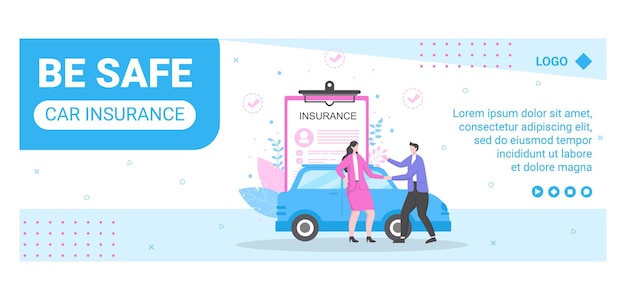Working as a driver for ridesharing apps like Uber or Lyft is a popular way to make some extra cash. But, there’s a common misconception that the insurance provided by these apps covers you from the moment you log in until your last passenger of the day is dropped off. That’s not exactly true. There are some pretty big gaps in those policies that could leave you in a financial or legal bind.
Luckily, many private insurance companies offer flexible and affordable auto insurance for rideshare drivers. Some even cover drivers for food delivery apps like Doordash and GrubHub.
Why do you need rideshare insurance? Well, when you’re driving for Uber or Lyft, you’re not just responsible for your own actions on the road, but also for the safety of your passengers. And even though these companies might not like to admit it, you’re essentially their representative on the road, which comes with its own legal liabilities.
It’s important to note that private rideshare insurance is not the same as commercial vehicle insurance. Uber and Lyft don’t require drivers to have commercial insurance, which is typically more expensive than personal auto insurance. However, some smaller ridesharing and delivery apps might require it. If you’re unsure, it’s best to check with the app before you start driving for them.
Rideshare insurance policies might not be available everywhere, and if you’re in a state without good options, you might need to consider commercial vehicle insurance instead.
So, why should you get private rideshare insurance?
-
Regular car insurance policies often don’t cover rideshare drivers. The rules vary by state, but don’t assume your regular car insurance will cover you while you’re logged into a ridesharing app. In fact, some insurance companies can drop you if you drive for a ridesharing app and don’t add rideshare coverage.
-
The insurance provided by Uber and Lyft doesn’t cover drivers in all situations. They offer basic insurance for drivers who are carrying or on their way to pick up passengers. But if you’re waiting for your next ride, even if you’re driving to a busier area to get a fare, you’re not covered. If you get into an accident during this time, you (or your primary insurer) are responsible for any injuries or property damage.
-
The standard coverage provided by ridesharing companies often has a high deductible. While they do provide liability coverage and under/uninsured motorist coverage, their collision and comprehensive coverage often comes with a high deductible. Private rideshare insurance can provide gap coverage for drivers who prefer lower deductibles and want full coverage while waiting for fares.
There are many car insurance companies that offer rideshare insurance, including Progressive, Geico, Allstate, State Farm, Farmers Insurance, Erie Insurance, Mercury, and American Family Insurance. Each of these companies offers different benefits, so it’s important to do your research and find the one that best fits your needs.
Remember, driving for a ridesharing app can be a great way to make extra money, but it’s not without its risks. Rideshare insurance is just one of the costs you’ll need to consider, along with fuel and vehicle maintenance. But with the right coverage, you can have peace of mind knowing you’re protected on the road.
